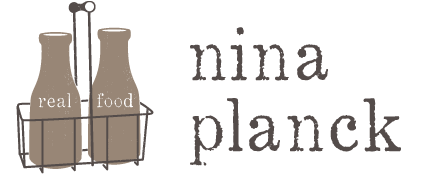Your Right to Real Food
10/30/07
I believe in capitalism.
I believe that traditional foods are good for you, that farmers ought to have the right to sell them conveniently and hygienically, and that you ought have the right to buy and eat them.
I believe in regulation. I believe that a competent and decent government regulates all industry - including farming and food production - to protect the public from reasonable and avoidable risks.
I believe that traditional food should be regulated by objective criteria, which reflect nature (such as the nature of a cow gut on an industrial diet or a diet of grass, or the odds that a pathogen will survive human digestion and make you sick), methods of production specific to the food in question, and an accurate assessment of risks to farmers and to eaters.
For example, I believe that chickens should be tested for objective levels of dangerous E. coli. Grass-farmer Joel Salatin will tell you that his chickens, raised on pasture, have been tested and shown ZERO levels of dangerous E coli. It would be highly unlikely - probably impossible - for any industrial poultry farm or slaughter line to say the same. Industrial poultry are so ridden with dangerous E. coli, chicken is treated with chlorine to make it safe for you. (We got rid of the chlorine in our house long ago, and we certainly don't want to put it on our food.)
Yet the state of Virginia wants to regulate the size and shape of his spanking-clean chicken processing unit, which I have seen with my own eyes and happens to be in the open air, rather than test for objective outcomes such as pathogen levels.
I believe that if regulators wished to be fair to traditional foods, they would regulate them fairly. That is not the case with a new California law, signed in early October 2007, which purports to make raw milk safer.
The law requires that raw milk contain no more than 10 coliforms per milliliter. It is not a relevant standard because scarcely any milk can meet it. Some 80% of milk contains more than 10 coliforms per milliliter. Most raw milk contains 50-100 coliforms per ml. The FDA allows 750 coliforms per ml in raw milk and only 10 coliforms per ml in pasteurized milk.
It will not make raw milk safer because it does not distinguish between benign, beneficial, and pathogenic coliforms. The beneficial ones help your body make essential vitamins and aid digestion. The pathogenic ones can make you sick. Certain strains of coliform will crowd out, or kill, pathogenic strains.
A standard that limits levels of dangerous coliforms would be sensible.
This law does not protect you. It protects industrial milk.
I read about this sorry piece of legislation on a Friday. We drank grass-fed, raw milk all weekend and will continue to drink it - and eat raw milk cheese - when ever we can get it from farmers and cheese-makers we trust. Happily, today we can collect a gallon of fresh raw milk from a trusted dairy, but in a pinch, we keep some raw milk in the freezer.
If you trust the farmer, you can trust the milk. But don't trust this law.
Lawmakers need to know that you want clean, safe, raw milk and relevant regs. It's time to take action and to stand up for your right to buy real food.


